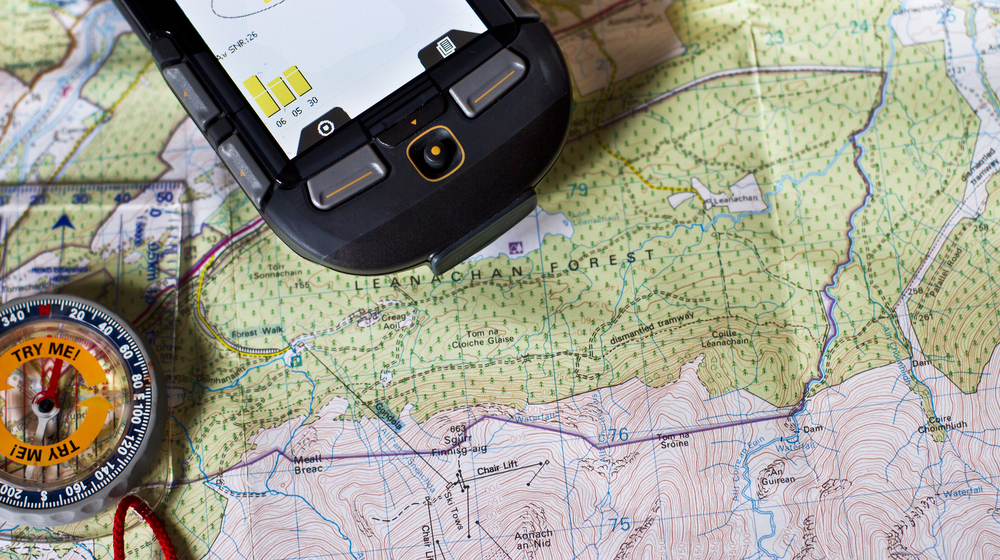Personal Safety
Compass Direction vs. GPS: Which Is Right For You?

Compass vs GPS might just be the debate among hikers nowadays. Some want to rely on the good old compass direction, while some find it easier to navigate with the more modern GPS. Let’s break down the differences here.
Compass VS GPS: Which One Is Better for You?
As you venture into the great outdoors, you should already know to pack the essentials, wear proper footwear, head out at daybreak, and let someone know your whereabouts.
But you may find yourself stuck when it comes to the best way to navigate – should you go with a traditional compass and topographical map, or opt for a GPS?
Even the most experienced hikers and those planning to stick to a trail, should be prepared for the possibility of getting lost, or needing to change course mid-hike. If a sudden storm forms, you may need to get downhill and to shelter faster than you anticipated.
There’s no right or wrong answer as to whether a compass & map or a GPS device is the right choice. There are pros and cons to each.
1. Cost
A compass is very inexpensive and requires no accessories except for a topographic map. You will need to buy a map for each place you are hiking.
A GPS is expensive, and you will always want to have extra batteries with you.
2. Reliability

Compass directions can become false readings when they are exposed to metal and magnetized objects – including rock formations and power lines. These can mostly be avoided if you use your compass carefully.
A GPS requires a strong satellite signal to work properly. That means you should not expect it to work anytime you are undercover – cloud cover, forest cover, inside a cave, etc. If you run out of batteries, it will not work. If the U.S. government decides to shut down satellite access, it will not work.
3. Readability
A compass is very straightforward and easy to read. When used in conjunction with your topographical map, you can get a very clear picture of the surrounding geography.
GPS display screens are tiny, so you will not be able to tell where you are in a broader sense, but you will have more specific immediate data.
4. Usability

You will need to study and practice with a compass and map to use them confidently. Opening and studying a large map when hiking can be cumbersome.
A GPS can be used with little to no training, but expensive classes are offered to teach you the full capability of the device. The GPS is small and easy to use as you hike.
5. Functions
A compass has no special functions.
A GPS can store a multitude of maps you can pull up any time. It can show your progress on your current hike and even estimate your altitude.
6. Likelihood of Damage
Compasses are very sturdy and hard to break.
A GPS can easily break if dropped or exposed to water.
7. Weight

Compasses and maps are both very lightweight.
A GPS is heavier, as are its extra batteries.
The Decision Is Yours
Even if you decide on a GPS as your primary navigational tool, always pack a compass and map as a backup. The GPS will still be an easy tool to use as you hike, but the compass and map are on the essential packing list in case the GPS stops working.
If you plan to hike extensively and in many new areas, it’s best that you learn how to use both options.
How about you, do you rely on compass direction or GPS? Let us know in the comments section!
Up Next:
-

 Do It Yourself7 months ago
Do It Yourself7 months agoParacord Projects | 36 Cool Paracord Ideas For Your Paracord Survival Projects
-

 Do It Yourself9 months ago
Do It Yourself9 months agoHow To Make Paracord Survival Bracelets | DIY Survival Prepping
-

 Do It Yourself9 months ago
Do It Yourself9 months ago21 Home Remedies For Toothache Pain Relief
-

 Do It Yourself10 months ago
Do It Yourself10 months agoSurvival DIY: How To Melt Aluminum Cans For Casting
-

 Exports8 months ago
Exports8 months agoAre Switchblades Legal? Knife Laws By State








Pingback: Avalanche Gear Checklist for Your Avalanche Survival Kit – SurvivalCove.com